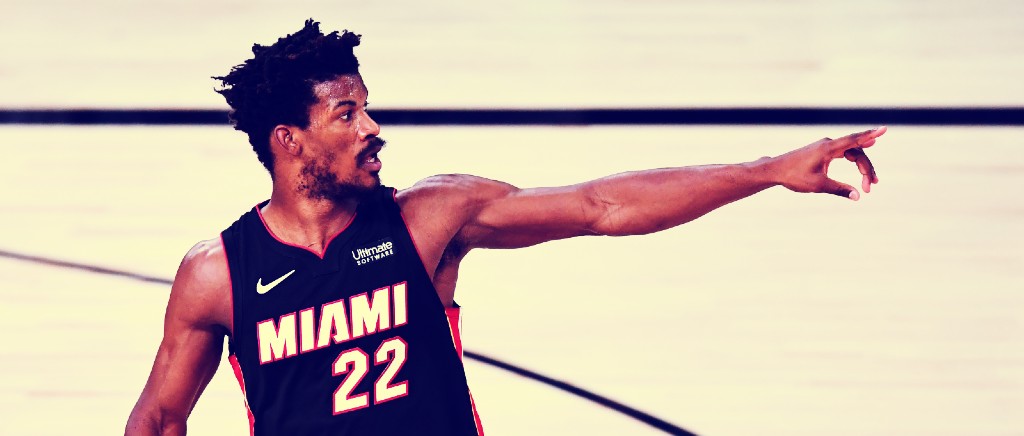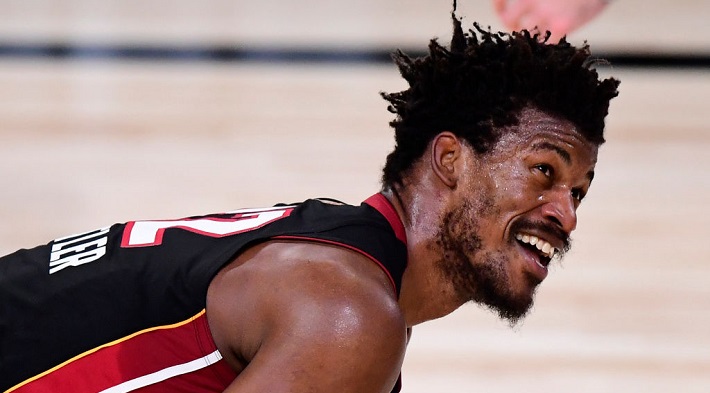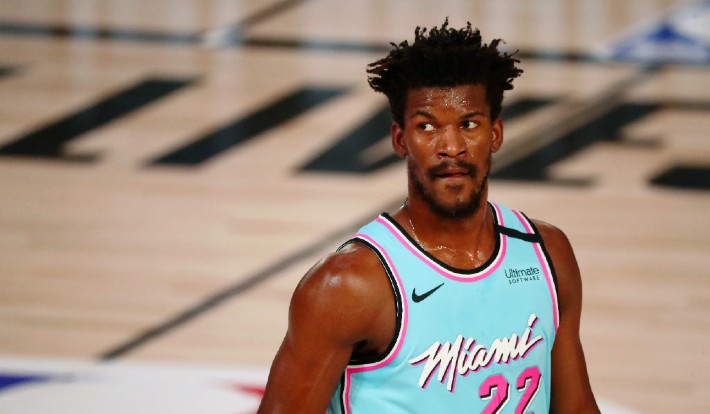
It’s dusk, cumulonimbus clouds drowsily piled along the horizon in a foaming rush and backlit by the sun sliding behind downtown Miami’s tidy snarl of green glass towers. A wall of living humidity waiting to violently split but for now lulled in the heat and tiered in periwinkle, electric coral, creamy bronze. Or else it’s a dawn breaking early and easy across South Beach, light trickling over the palms, early risers lifting their bodies in supplication to the clammy chin-up bars of beach gyms, the chipping Deco pastels, sun spreading slow and sure across the interminably cerulean Biscayne Bay. It could be afternoon, too, light so concentrated that the sky feels like one giant sun reflector folded up around the edges of Little Haiti and Coconut Grove, the air so hot, holding so much moisture, that it shimmers and slinks. Whatever the time, there’s a car, maybe convertible, easing out across the MacArthur Causeway where it curves like an arm at the elbow and speeds west, toward the city.
The highway hopscotches through manmade islands plunked in well-tended clusters, leisure boats dwarfed by the idling behemoths of cruise ships sitting empty and eerie along the Port of Miami. A neat line of royal palms dotting the median strip sends down splashes of intermittent shade in lazy Morse onto the driver, who blinks dreamily and hugs the car close to the low wall dividing asphalt and an undulating expanse of chalky turquoise water.
In this pleasant daze, as traffic loosens and slows, the driver drifts. Maybe to his first game in late October, a debut that felt, as long in the making as it was, markedly unhurried — 21 points, five rebounds, three grinning steals. An easy unfurling of expectation. It’s possible that here the driver chuckles for how Bam Adebayo and Derrick Jones Jr., smirking and sly, crept up behind him, Jimmy Butler, as he matter-of-factly explained to a national broadcaster about team will, a collective sense of “want to.” It showed the initial encapsulation of Butler in Miami: a person made to slip between a relentless, single-minded drive to work, to win, to always do more, and the easy charm of making it look like less. He was the incandescent hum of South Beach neons as much as he was the gauzy churn of the city on the other side of the water.

“He’s a steamroller tonight,” was the color commentary line early last February, as Butler burned down the middle of the paint. He split Shake Milton and Joel Embiid by turning his whole body, coming at them sideways, taking two steps to the basket on tip-toes and still sinking the shot, gaining the foul. But the line was all wrong because he’s never so brutish, his footwork not the flattening kind. Butler picks the tightest spots because he can split them wide open, pressing the defender to stand where he wants them, like the mark on a theatre stage put there by a finicky director.
His head and chest fakes, the shimmy of his shoulders, are often imperceptible unless you’re a foot away and staring hard, which hapless defenders usually are, losing him in the lulling seconds it takes for them to lock on. Butler invites contact if only so he can spring away from it at the precise moment it will play in his favor, lithe and fluid as water dripping down tangles of palm fronds when the South Florida sky finally breaks. Butler took 69.3 free throws per 100 shots from the field last season, dipping to 66.0 per 100 in the playoffs, presumably because he was busy creating critical moments for his team. It is a draining and smart disruption, getting in the way of an opposing team’s budding rhythm at either end of the floor.
In the car, Jimmy Butler is maybe struck by how he’s suddenly hovering high over the Bay, floating toward the city, so imperceptible is the lifting incline of the freeway. This is the feeling opponents have, of suddenly being in over their heads against a disciplined, grinding Heat team that will outwork any inch they are allowed. Butler’s trips to the line punctuate a larger point, just how careful he can be on the floor. Committing only 1.6 fouls per 36 minutes, the light work of Butler’s bodying comes more as a spectral possession than an overpowering by force. Still, 2019-2020 was the most physical of his career, with 4.8 defensive rebounds and 6.7 total rebounds per game, he was seeing reflections of himself in the glass he was up against more than any other year before it. It was the same apparitional sense Butler left players with, of seeing something there, then gone, in the corners of their eyes after the ball, once on the way to their waiting hands, was halfway down the floor and about to be dunked by an already airborne Butler.
Fifth in the league in steals, his first run with the Heat was a season of ransacking. He deflected it from Giannis Antetokounmpo’s impossibly long reach, poked it away from Embiid, lifted it from Zach LaVine once while he was mid-spin under the rim, chased down Norman Powell to tip it toward Miami’s basket and Adebayo, waiting to catch the ball and volley it back to Butler, turning on a dime to sprint for the slam.
Not to put too fine a point on it but the way Butler moves in Miami is it’s own small wonder. Freed from so many mental and physical limitations — the heft of likability, of trying to convince every front office before Pat Riley’s that he was someone to place their trust firmly in and now, against the Heat’s exacting physical system, Butler’s own unrelenting routines are just status quo — he plays with the kind of grace and ease that comes after years of understanding that while there’s everything to lose he was the only person who could opt to fold, and he’d never let himself do that. Butler’s long-held loner persona made for a good villain, and on court it kept opponents guessing, but it was a necessary measure of self-control as much as protection. To watch his warmth now, that coy smirk smoldering in a climate where hurricane season lets up as soon as basketball starts, is the attrition of so many years spent steeling himself for the next sloughed away by sun, salt and moisture, given the same treatment as every other monument in Miami.

Atmospheric considerations extend to the teammates Butler’s now surrounded by. Frenetic and obsessive as him, enamored with the leader they’ve, it must seem at times, divined in Butler. Erik Spoelstra said he used to imagine what it would be like to coach Jimmy Butler, and now he has Butler’s voice barking back at him almost every day of the week. The joy his teammates took in lobbing him half court passes, in looking for Butler knowing they could hardly remember a time when his eyes weren’t on them, too, even if it had only been a few months, was palpable. His first with the Heat was the most generous season of Butler’s career, points per game hanging around 19.9 but assists at a career-high of six per game. He was the benevolent moment maker, urging his teammates on as best he knew how, relentless heckling off the court and hurling the ball at them in the brightest slice of a second on it.
“What surprised me the most were his intentions,” Duncan Robinson told SI this preseason on the way Butler arrived in Miami last year, not so much testing as already at work, “It wasn’t coming from a malicious place. It was coming from a place of, ‘Let me see what we got here.’”
Asked about his teammates after the Heat’s first practice clear of the preseason, Butler smiled, “The guys look real comfortable.” Asked specifically about Adebayo’s growth as a leader and Butler relaxed more than he tends to when talking about himself, “He’s more comfortable getting on people because he realizes that he can do it, and everybody’s looking at him because he cares that much.”
While true, it also sounded like the way Butler’s been described. The difference being that in Miami, finally, it’s a compliment.
“I love to see it,” he continued, “I love his competitive edge, the way he’s going at myself, the way he’s going at anybody in practice. It’s huge. It’s been a big part of his growth. And he’s going to continue to do that,” he pauses, his voice perceptibly softens, “he will.”
“We can win,” Butler went on to say, faint remnants of his Texan drawl stretching the “i” in win so it became “we.”
“I don’t know if too many people are listening or hearing me, but we can.”
When Butler says win he means everything. A championship, to get back to where they had it in reach is what he’s more interested in. When asked about this season he appears bored already. Not that he’s over it, that a season, however untraditional this one will be, isn’t a necessary part of the process, but that the regular season is merely the mechanism, something so familiar to him that its rhythms come as easily as slipping into the driver’s seat and pulling onto the road. Because the Finals, for Butler, were not the final picture. They were the frame. When he talks about that six game fight against the Lakers, he is already looking through these months ahead toward what he sees there so clearly at the end — another shot at it.
“In the end, we get another crack at it now. That’s what I’m locked in on,” Butler says, “I didn’t have to make it to the Finals and lose it, to realize how bad I wanted to win it.”
What that performance meant for Butler’s career, securing his spot as a superstar caliber player with the prowess to back it up was a culmination for any who still doubted what he was capable of. In some ways, Butler’s ascension last season eclipsed the Lakers title, became the bigger, more compelling story. But not for Butler, because it also left him bereft of the only thing he wanted.
Asked if he rewatched any of those Finals games and he almost seems offended. “No,” he says firmly, adding, “And if I was to rewatch, I wouldn’t rewatch the games that we won. I would look at the ones that we didn’t.”
What discourse and analysis misses with the steady climb of Butler’s career is that he revels in working, methodically, toward what he wants. It took eight years for him to get here, at the crest of the road offering the highest vantage point. There’s no reason for him to rev the engine for optics, for bravado, when every mile but that very last one is so familiar. Whether or not he really ripped the rearview mirror out of his car years ago hardly matters because from this point, with the team he has, career he’s built and the fuel to finally get what he’s always wanted. All it takes quick glance cast over a shoulder, out the driver’s side window rolled down for the breeze off Biscayne, or ahead at the short distance Butler has left to go, and all of it, the thousand precise points of memory, are lit up like sun spooling out across clear water.
